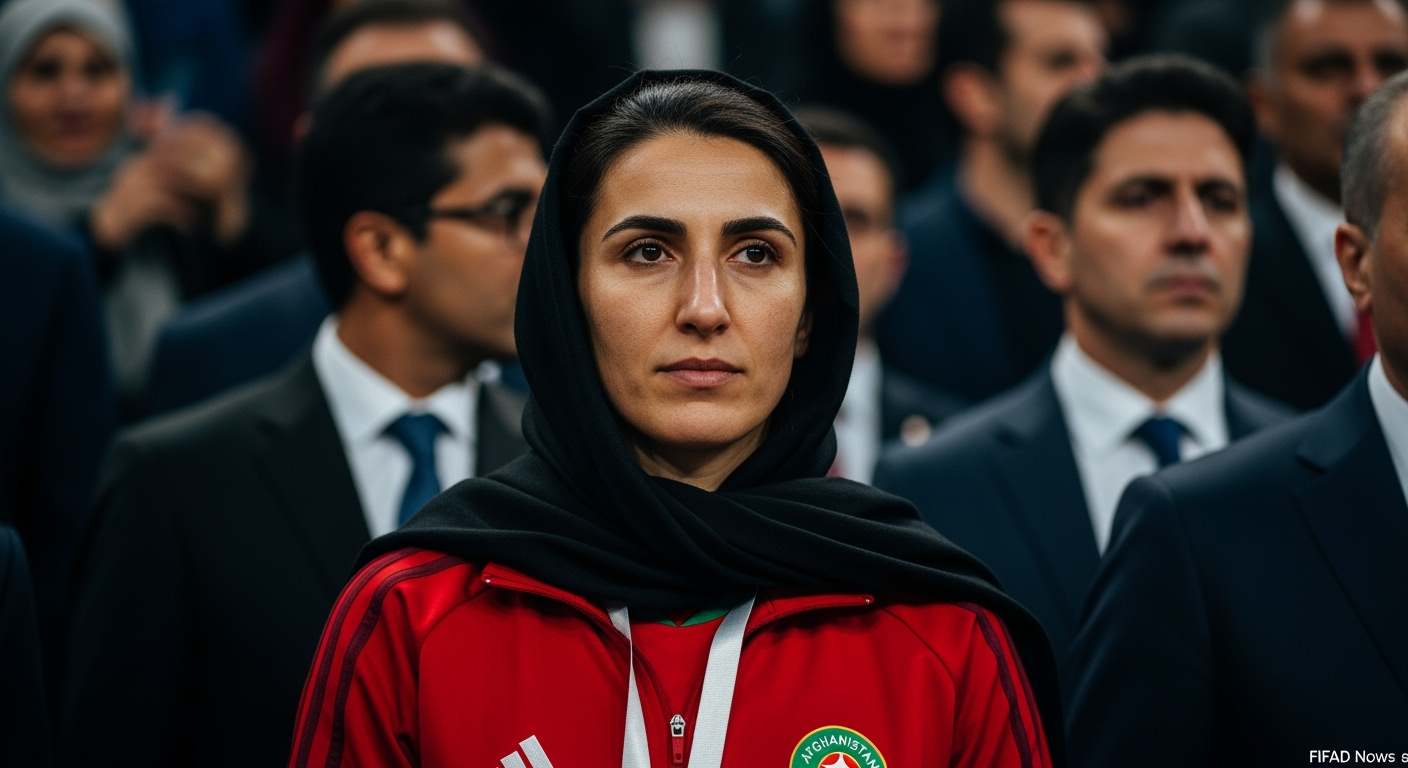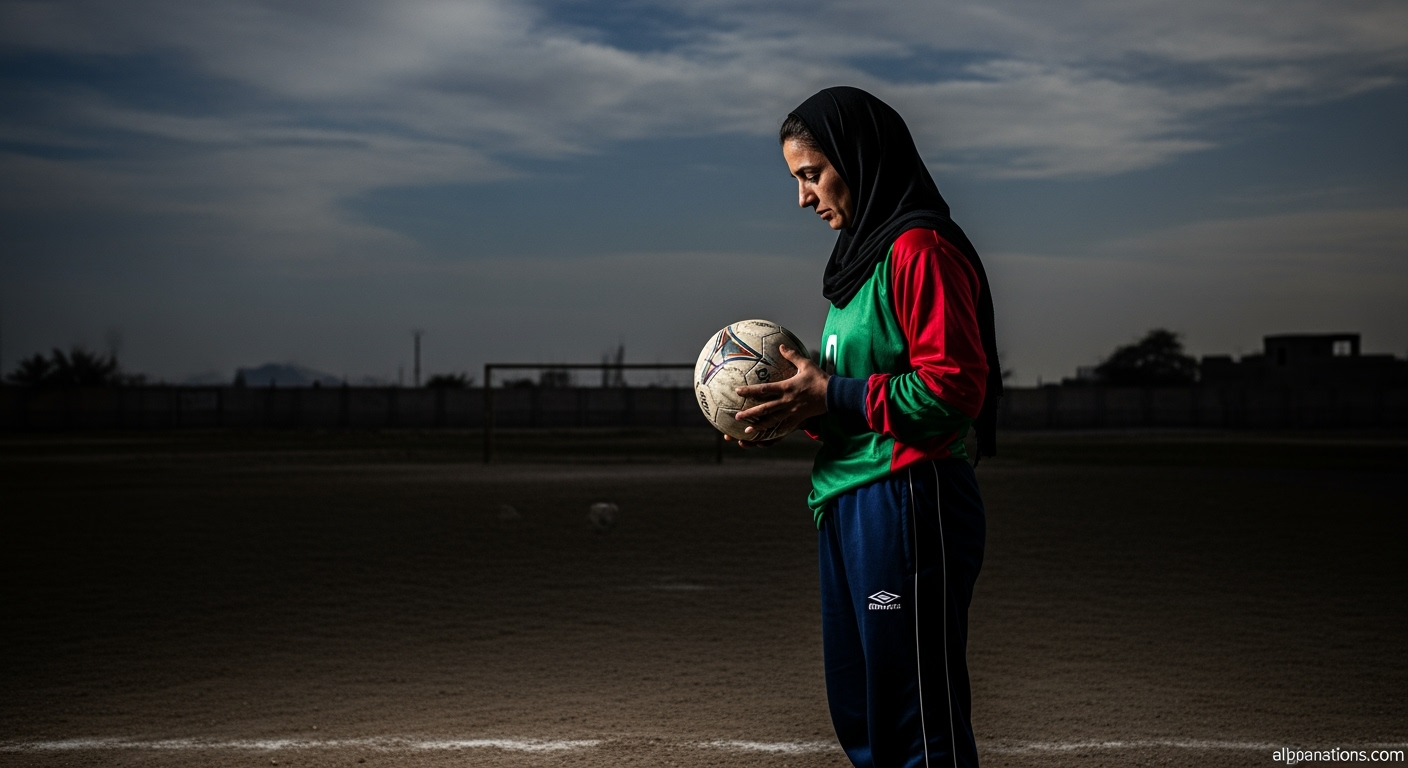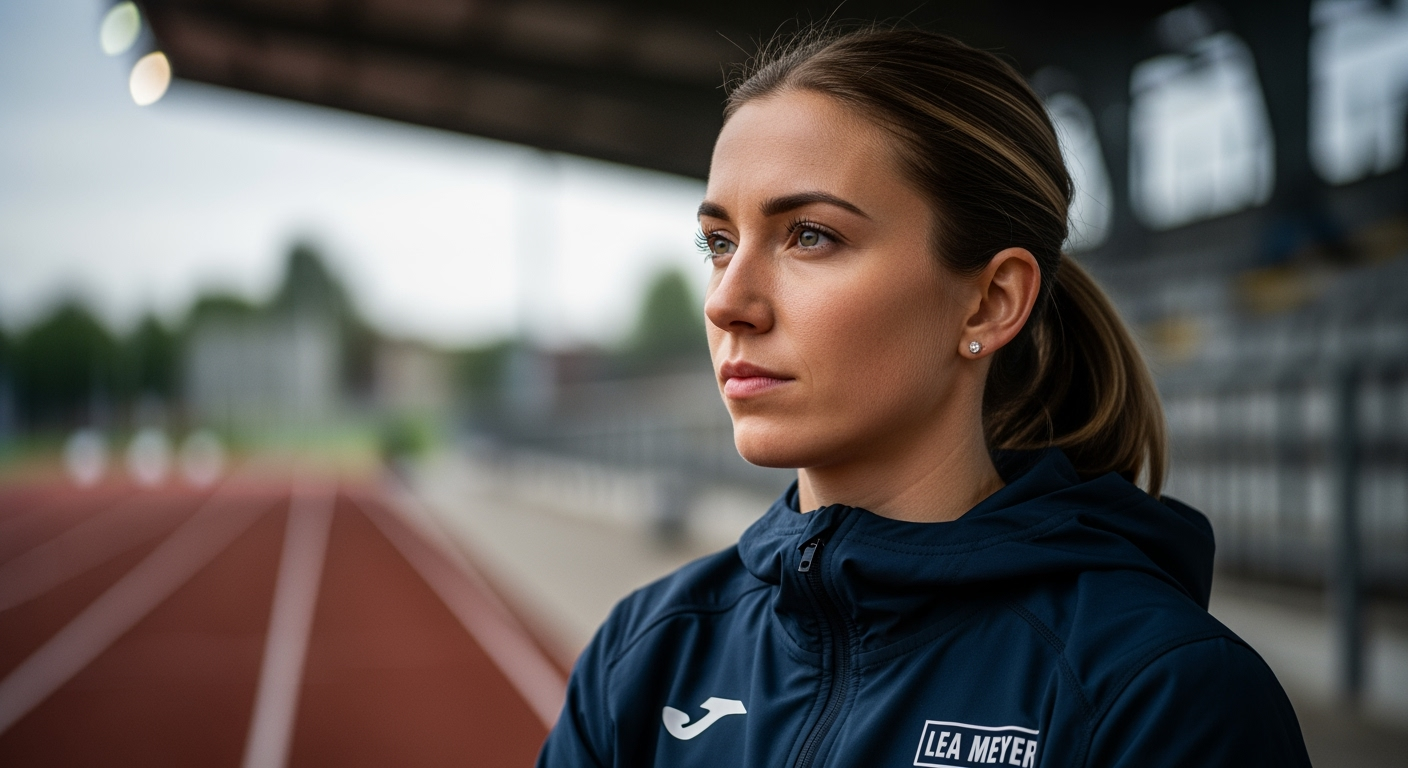Related Articles

Afghan Women's Football Team Forges Historic Path Back to International Arena After Years of Exile




In a landscape traditionally defined by raw performance and unwavering output, German steeplechase athlete Lea Meyer is spearheading a critical dialogue, urging the nation's sporting institutions to recognize athletes as complex individuals beyond their competitive results. Her outspokenness, particularly regarding mental health, has resonated throughout the German sports community, amplifying a growing movement to foster a culture that prioritizes the well-being of its competitors. As Meyer prepares for her second Olympic appearance, her advocacy underscores a profound shift towards integrating psychological and personal support within the rigorous demands of elite athletics.
Born in Löningen, Germany, on September 16, 1997, Lea Meyer quickly distinguished herself in middle-distance running, developing a passion for the sport from a young age. Her dedication and natural talent saw her ascend through junior athletics, culminating in a specialization in the demanding 3000-meter steeplechase. This unique discipline, which combines endurance running with technical hurdles and a water jump, appealed to Meyer’s adventurous spirit, as she expressed a fearless approach to obstacles. Her impressive career highlights include competing in the 3000-meter steeplechase at the Tokyo 2020 Olympics and securing a silver medal at the 2022 European Championships in Munich. She has also claimed multiple German National titles and has once again qualified to represent Germany at the upcoming 2024 Paris Olympics. Her athletic prowess on the global stage makes her voice particularly impactful in discussions concerning athlete welfare.
Meyer's advocacy comes at a pivotal moment for German sport, which, despite recent advancements in mental health awareness, still grapples with a deeply ingrained "culture overly focused on output". For decades, the prevailing expectation was for competitive athletes to display only strength, stamina, and motivation, leaving little room for acknowledging mental stress or vulnerability. Sports psychologist Johanna Belz, from one of Germany's most renowned sports universities in Cologne, notes that while "taboos have been broken down" and there's more open discussion about topics like depression and anxiety, the system itself largely continues to reward performance above all else. Athletes who achieve high performance are promoted, perpetuating a system where success is often narrowly defined by results, rather than holistic well-being.
Meyer's public statements, reportedly made at the World Championships in Tokyo, served as a potent reminder that athletes are "more than just their performance". Her message underscores the critical understanding that physical and mental health are not contradictory to peak performance, but rather "a basic requirement" for it. This perspective marks a significant evolution from past attitudes, challenging the notion that acknowledging mental health concerns equates to weakness.
The recognition of mental health as a fundamental component of an athlete's career is gaining traction, yet its full implementation remains a challenge within German sports organizations. While major sports like football capture significant public attention, smaller disciplines such as swimming or athletics often face a greater need for enhanced psychological support structures. The high-stakes environment, intense training regimens, and constant pressure to perform can take a toll on athletes, making accessible and comprehensive mental health resources indispensable. Meyer’s own experiences reflect the physical and mental demands of elite competition; she had to withdraw from the World Athletics Championships in Budapest due to back problems, even after a season that began with personal bests and two World Championship nominations. Such setbacks highlight the fragility of an athlete's career and the necessity for robust support systems that address both physical injuries and the mental strain they cause.
The traditional German sporting model, while historically successful, is now being prompted to evolve. The emphasis is shifting from merely achieving victory to nurturing the individual who strives for it. This includes providing psychological counseling, fostering environments where athletes feel comfortable expressing vulnerabilities, and educating coaches and staff on mental health first aid. Such measures are vital to ensure long-term athlete welfare and sustainable success.
Beyond her public advocacy, Lea Meyer's personal philosophy offers a poignant glimpse into the athlete's experience. Despite the demanding nature of her training, she views running as a form of "relaxation" and even "therapy". For Meyer, the act of running provides a unique space to be completely present, to switch off from external pressures, and to engage in self-reflection. She describes how even the most rigorous sessions can be a "relaxing balance" where she can "leave everything else aside and just be with myself and just concentrate on myself". This deeply personal connection to her sport highlights the intrinsic value of physical activity for mental well-being, separate from its competitive outcomes.
Her background further illustrates the human journey behind the elite athlete. Introduced to running by her parents, who were training for a marathon, Meyer's early experiences instilled in her a love for the sport. Her decision to pursue psychology at the University of San Francisco also aligns with her holistic perspective on human performance and well-being, suggesting a natural inclination towards understanding the intricacies of the mind. Outside of her athletic pursuits, Meyer embraces a vibrant personal life, enjoying time with friends and family, coffee, and her dog. These aspects of her life reinforce the idea that athletes, like all individuals, thrive on balance, connection, and interests beyond their professional identities.
Lea Meyer's compelling message serves as a vital catalyst in the ongoing transformation of German sport. By bravely sharing her perspective and highlighting the importance of mental health and individual well-being, she reinforces the idea that true athletic excellence is inextricably linked to holistic human development. While German sport has a rich history of success and a strong culture of dedication, adapting to modern understandings of athlete care is paramount. The journey towards a more human-centered approach is complex, requiring systemic changes and continuous dialogue. However, with athletes like Lea Meyer leading the conversation, German sport is moving closer to an environment where every competitor is truly seen, supported, and valued as a person first, and an athlete second.